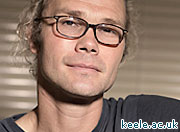Opposition to genetically modified babies continues despite MPs voting to allow two controversial techniques.
Christopher Exley, a professor of bioinorganic chemistry, warned that the techniques could have disastrous repercussions in the long term.
His severe criticism has also been echoed by a Conservative MP and other leading scientists.
Risks
The techniques would produce children who are free from rare mitochondrial diseases but who would have three or four parents.
Prof Exley, of the University of Keele, said: “There is no doubt that the suffering of children with mitochondrial diseases and their parents is truly heartbreaking”.
“But allowing scientists to go ahead with this supposedly neat solution to the problem may actually cause more distress in the long term. We simply have no idea what the risks are”, he continued.
Disastrous consequences
The professor said that mitochondrial replacement “is a genetic experiment which could have disastrous consequences for generations”.
He warned: “Once this technique is allowed to go ahead, there is no going back” and suggested that the consequences “may only reveal themselves decades down the line”.
Conservative MP Stewart Jackson was one of 128 politicians who voted against plans to allow GM babies.
Nightmarish future
Writing in the Peterborough Telegraph, he said that he had voted in line with his conscience on the issue.
Mr Jackson wrote: “Doesn’t every person have the right to know who their parents are – from whom they have inherited traits, characteristics and the essence of their own humanity?”
He added: “Of course I want to eradicate preventable disease but at what cost and I have to ask: Are we embarking down a long dark path leading to a nightmarish future and consequences unseen?”
Unethical
Dr Calum MacKellar, of the Scottish Council on Bioethics, said the techniques are “not a treatment”.
He described mitochondrial replacement as “a kind of genetic cleansing procedure in which persons with disability and sickness are seen as being unworthy of life”.
On BBC Three Counties Radio, Dr Peter Saunders, Director of the Christian Medical Fellowship, was another to speak out against the plans.
He described the procedures involved with mitochondrial replacement as unnecessary, unsafe and unethical.
The House of Lords is now set to vote on the Human Fertilisation and Embryology (Mitochondrial Donation) Regulations 2015, which if approved could come into force in October.

